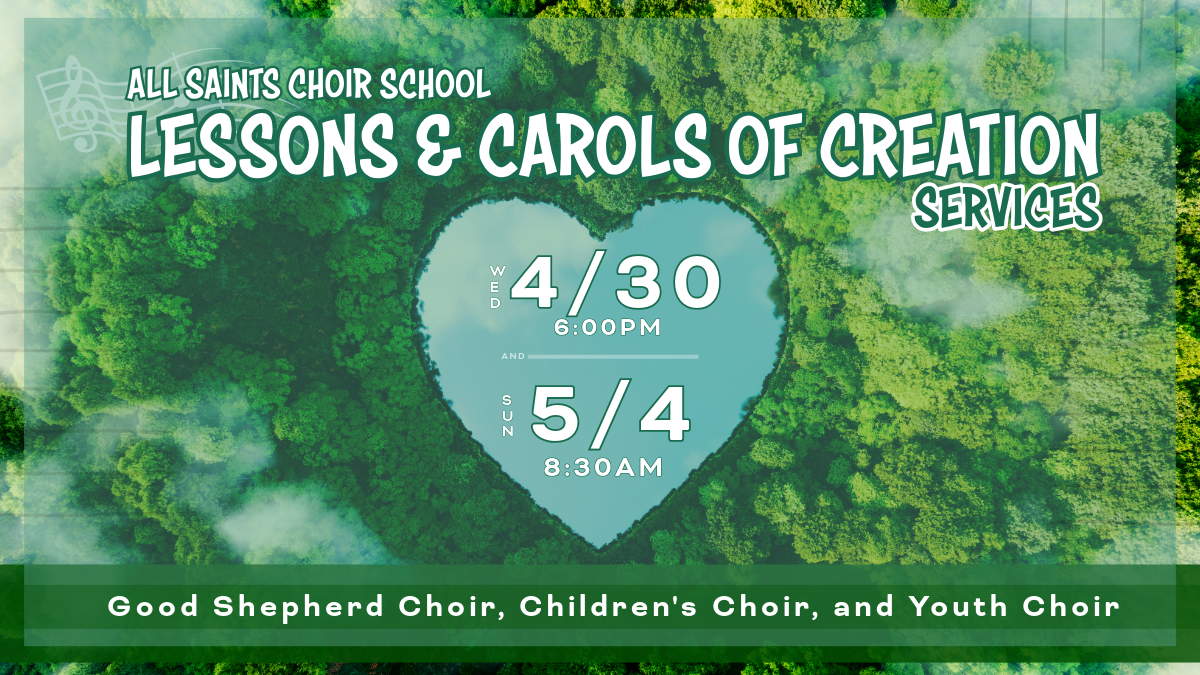Lessons from the Garden
"Lessons from the Garden"
Sermon by The Rev. Cindy Carter
June 16, 2024
With many such parables he spoke the word to them, as they were able to hear it; he did not speak to them except in parables, but he explained everything in private to his disciples.
Perhaps it would have been easier for his first century audience if Jesus had just said what he meant - straight out.
But, as today’s scripture says, I’m guessing that they wouldn’t have been able to hear, really to hear, most of what he said. It would have just been too hard, and they would probably just shut their ears and walked away. .
Now, today’s scripture tells us that Jesus did explain what he meant in the parables privately to his disciples. Personally, I wonder about this because Jesus’ disciples, especially in Mark’s Gospel, seemed to have been so utterly clueless most of the time.
But that’s a subject for another discussion or another sermon.
The reality is that we didn’t get those explanations that Jesus gave privately to his disciples.
So, we are left only with these teachings of Jesus called parables, without explanation.
One dictionary I checked defined a parable as “a simple story used to illustrate a moral or spiritual lesson.”
Now, I probably shouldn’t quibble with the dictionary, but I wonder of the writer of this definition had ever read the parables of Jesus. Because I usually find the parables of Jesus to be anything but simple.
These stories, called parables, that Jesus told were meant to be disruptive, to challenge what those who heard them thought they knew, to confront them with something that they might not really be ready to hear if it came to us straight on.
They didn’t come straight on to those who heard them in first century Palestine, and they don’t come straight on to us today. One commentator has called parables “truth delivered sideways.”
Another commentator has called them “narrative time bombs.” That is, a parable is a story that sounds simple when we first hear it, but it keeps us thinking and thinking and thinking about it…tick…tick…tick…and then… Boom! It hits us. Something surprising, unexpected, even shocking comes to us from this simple story, after we have turned it over and over in our brains.
One commentary I read said that parables are a form of literature, like poetry, that demands a great deal from us. They are not obvious to just anyone, not a casual reader or listener. Understanding parables requires an investment on our part.
Today, we have heard two short parables. Both with an agricultural theme.
I love the agricultural images that Jesus uses in these parables. Not because I would never call myself a farmer, but because I do love to garden. I love to get my hands in the dirt.
I completely agree with Margaret Atwood who said that, “In the spring, at the end of the day, one should smell like dirt.” And, for me the little poem that ends “One is nearer God’s heart in a garden than anywhere else on earth” comes pretty close to being scripture.
A person plants some seed. And after a few days, with the person sleeping then waking, sleeping then waking, the seeds sprout and grow until it is ready to be harvested. But, the person doesn’t understand how this happened. That’s what the kingdom of God is like.
Mustard seed, which is tiny, tiny, tiny, is sown in the ground and then grows into a very large plant. It becomes so large that birds can come and nest in it. That’s what the kingdom of God is like.
Really? Really? That’s what the kingdom of God is like, Jesus? And, what are we to make of these two puzzling little stories, Jesus?
Well, first, let me say that if you find someone who tells you they know the exact meaning of these parables (or any parable), be skeptical. You see, I don’t think parables work that way. Parables require us to use to our imaginations, to let them spin around in our heads, to discuss them with others.
And, parables usually, I’d say almost always, have multiple meanings. That’s the nature of parables.
But, let me tell you what one commentator has said about these parables. Here is what one scholar has suggested they may mean.
1. The mysterious growth of seeds. We are not in control of when God will bring in God’s kingdom in all its fullness. We are not in control of God. We are not even in control of our own lives. The seeds get planted; they sprout; they grow. But, how does it happen? We don’t know, and we certainly don’t control the growth of those seeds. Even if I carefully water and weed and fertilize things in my garden, I don’t make thing grow. Like every gardener, I know that I don’t control the growth of what I plant.
2. Tiny seeds that grow into something big. God’s kingdom is not what we expect. It certainly isn’t something we can control, but it’s also something we might not even want, especially if we even remotely like things the way they are.
Think about those mustard seeds. Mustard wasn’t usually sown in a garden because it is so uncontrollable. It takes over. It’s basically a weed. If you are a gardener, think mint. I keep mine in a pot because otherwise, before long I’d have a whole yard full of mint.
I learned this the hard way in the yard of the first home I bought in St Louis when I was a fledgling gardener. Lovely old brick house, built not long after the 1904 World’s Fair. Across the street from a beautiful Victorian park. Mint everywhere. Every crevice and every crack. Definitely in a pot.
God’s kingdom turns what we think we know about how things work upside down. Mustard in a garden. Why that’s just crazy.
We are not on control of the coming of God’s Kingdom in all its fullness. And, God’s kingdom is not what we expect it to be. Heck, God’s kingdom may not even be exactly what we would want, because God’s kingdom may very well turn our world upside down.
What if Jesus had said that straight on? Not exactly what we might want to hear, is it? That message might just make us shut our ears and walk away.
Here’s my suggestion to you.
Think about these two parables this week. Maybe even re-read them a few times during the week. Let them spin around in your head. What do they say to you? Use your imagination. Look for places in your life that relate to what these parables say. Feel free to give them your own interpretation.
And, what if they tell us that we are not in control of the ultimate coming of God’s Kingdom? What if they tell us that God’s kingdom may not be what we expect or even want? Well, what then? What would that mean for how we live our lives?
Jesus doesn’t make it easy for us. He didn’t give us a rule book or a “how to” guide; instead he gave us strange, unusual, surprising stories.
But, the parables he told in first century Palestine have kept us thinking, kept us listening, kept the conversation going for 2000 years. And, that, my friends, is how I believe we learn the lessons this one named Jesus came to teach us.
Listen as you read and think about these parables this week. Perhaps you will hear the narrative time bomb’s tick…tick…tick…and then maybe even the BOOM of something surprising, unexpected, and even shocking that will come to you from these apparently “simple stories.”
AMEN.
More Announcements







